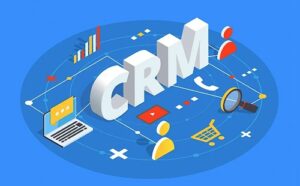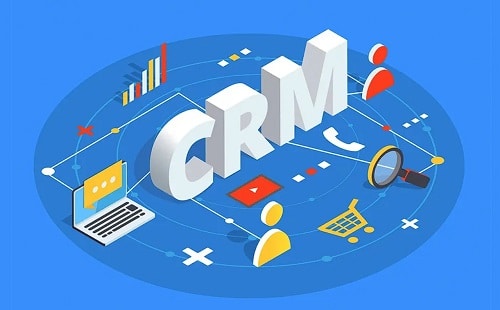Lead management is an essential component of any successful sales strategy. It involves identifying potential customers, tracking their interactions with your business, and nurturing them through the sales process until they are ready to make a purchase. Customer Relationship Management (CRM) software can play a critical role in lead management by providing businesses with the tools they need to effectively manage their leads and convert them into customers.
What is Lead Management?
Lead management is the process of identifying potential customers, tracking their interactions with your business, and nurturing them through the sales process. This involves capturing leads from various sources, such as website forms, social media, and events, and then managing those leads through a series of touchpoints, such as email campaigns, phone calls, and meetings.
The ultimate goal of lead management is to convert these leads into paying customers. Effective lead management requires a combination of strategy, technology, and process, and can be time-consuming and resource-intensive for businesses without the right tools in place.
How Can CRM Software Help with Lead Management?
CRM software can be a powerful tool for businesses looking to manage their leads more effectively. Here are some of the key benefits of using CRM software for lead management:
1. Centralized Lead Management
CRM software allows businesses to capture and store leads in one central location, making it easy to track and manage lead interactions. This eliminates the need for manual tracking of leads and ensures that no leads fall through the cracks.
2. Automated Lead Nurturing
CRM software can automate many of the lead nurturing processes, such as email campaigns and follow-up tasks, freeing up valuable time for sales teams. Automated lead nurturing can also help businesses stay top-of-mind with potential customers, increasing the likelihood of a successful conversion.
3. Lead Scoring
CRM software can help businesses prioritize their leads based on their level of engagement and likelihood to convert. By assigning scores to leads based on their actions and behavior, businesses can focus their efforts on the most promising leads, increasing the efficiency of their sales process.
4. Sales Pipeline Management
CRM software can provide businesses with a clear view of their sales pipeline, including the number of leads at each stage of the sales process and the likelihood of a successful conversion. This can help businesses identify bottlenecks in the sales process and make data-driven decisions to optimize their strategy.
5. Reporting and Analytics
CRM software can provide businesses with valuable insights into their lead management performance, including conversion rates, lead sources, and sales cycle length. This information can help businesses identify areas for improvement and make data-driven decisions to optimize their lead management strategy.
Choosing the Right CRM Software for Lead Management
When choosing a CRM software for lead management, businesses should consider their specific needs and goals. Here are some factors to consider:
1. Lead Capture and Management
Businesses should choose a CRM software that allows for easy lead capture from various sources, such as website forms, social media, and events. The software should also provide a centralized location for lead management, allowing businesses to track lead interactions and history.
2. Lead Nurturing and Automation
CRM software should provide tools for lead nurturing and automation, such as email campaigns, automated tasks, and follow-up reminders. This can help businesses stay top-of-mind with potential customers and increase the likelihood of a successful conversion.
3. Lead Scoring and Prioritization
CRM software should allow businesses to assign scores to leads based on their engagement and likelihood to convert. This can help businesses focus their efforts on the most promising leads and increase the efficiency of their sales process.
4. Reporting and Analytics
CRM software should provide robust reporting and analytics capabilities, allowing businesses to track their lead management performance and make data-driven decisions to optimize their lead management strategy. The software should provide real-time data on conversion rates, lead sources, and sales cycle length, among other metrics.
5. Integration and Customization
CRM software should integrate seamlessly with other business tools, such as marketing automation and customer service software. It should also be customizable to fit the unique needs of the business, allowing for custom fields, workflows, and reporting.
Best Practices for Effective Lead Management with CRM
Here are some best practices for effective lead management with CRM software:
1. Define Your Lead Management Strategy
Before implementing CRM software for lead management, businesses should define their lead management strategy. This includes defining their target audience, lead qualification criteria, and lead nurturing processes.
2. Train Your Sales Team
CRM software is only effective if it is used correctly. Sales teams should be trained on how to use the software effectively and how to follow the lead management processes.
3. Monitor and Measure Performance
Businesses should monitor and measure their lead management performance regularly, using the reporting and analytics tools provided by the CRM software. This can help businesses identify areas for improvement and make data-driven decisions to optimize their lead management strategy.
4. Continuously Improve Your Lead Management Strategy
Effective lead management is an ongoing process. Businesses should continuously analyze their lead management strategy, identify areas for improvement, and make adjustments to optimize their strategy.
Conclusion
CRM software can be a powerful tool for lead management, providing businesses with the tools they need to effectively manage their leads and convert them into customers. By centralizing lead management, automating lead nurturing, prioritizing leads, managing the sales pipeline, and providing valuable reporting and analytics, CRM software can help businesses streamline their lead management processes and achieve their sales goals. To maximize the benefits of CRM software for lead management, businesses should choose the right software for their needs, train their sales team effectively, monitor performance regularly, and continuously improve their lead management strategy.
Effective lead management is crucial for the success of any sales strategy. By using CRM software, businesses can manage their leads more efficiently and effectively, allowing them to focus their efforts on the most promising leads and close more deals. With the right CRM software in place and a solid lead management strategy, businesses can improve their sales performance, increase their revenue, and achieve their business goals.
FAQ
Q: What is lead management?
A: Lead management is the process of identifying potential customers, tracking their interactions with your business, and nurturing them through the sales process until they are ready to make a purchase.
Q: How can CRM software help with lead management?
A: CRM software can help with lead management by providing businesses with tools for centralized lead management, automated lead nurturing, lead scoring, sales pipeline management, and reporting and analytics.
Q: What should businesses consider when choosing a CRM software for lead management?
A: Businesses should consider factors such as lead capture and management, lead nurturing and automation, lead scoring and prioritization, reporting and analytics, and integration and customization when choosing a CRM software for lead management.
Q: What are some best practices for effective lead management with CRM?
A: Best practices for effective lead management with CRM include defining your lead management strategy, training your sales team, monitoring and measuring performance, and continuously improving your lead management strategy.
Q: Can CRM software be used for other business processes besides lead management?
A: Yes, CRM software can be used for other business processes besides lead management, such as customer relationship management, marketing automation, and customer service.

